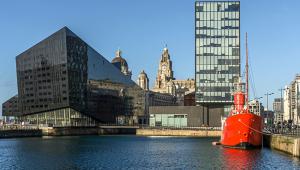On Sunday the government announced the cash injection, which consists of £1bn in capital spending for infrastructure projects and around £850m to upgrade existing outdated facilities and equipment.
The £850m will be available for 20 hospitals in England over a five-year period while the £1bn will be used to tackle a backlog of maintenance issues this year.
Although the government has repeatedly claimed this was ‘new’ money, health experts have said it was mainly giving trusts permission to spend cash they already have.
Dr Eleanor Roy, health and social care policy manager at CIPFA, said: “It should be noted that more than half of this ‘boost’ to the NHS represents cash that many NHS providers already have.”
The prime minister’s announcement “merely raises the capital Departmental Expenditure Limit (DEL) threshold for the health services overall”, she said.
Capital DELs are set at the Spending Review and limit the level of capital spending by trusts from their own departmental budgets. By raising these, the government unlocks more money to be spent on capital projects to improve facilities.
“In practical terms, this means that NHS trusts can now spend money they have, rather than having to scale back their capital plans to meet the departmental limits that were decided last year,” Roy added.
The government has also said there will be a ‘health infrastructure plan’ to accompany the capital funding.
Roy said: “The new infrastructure plan must be developed alongside the review of the capital system promised with the Spending Review, and designed to support the ambitious long-term plan for the NHS and the policy agenda for health and care integration.”
Sally Gainsbury, senior policy analyst at the Nuffield Trust think-tank, said on Twitter some of the money trusts had for capital investment in their budgets was cash they had earned through efficiencies.
Trusts have been able to boost their capital budgets through the ‘Provider Sustainability Fund’ since 2016 - if a trusts cuts costs and reports a surplus it receives a cash boost for capital spend from the government.
Gainsbury explained on Twitter the announcement effectively allowed the trusts to use this money when they had not been able to before.
She wrote: “The ‘PSF’ incentive deal was this: cut your costs and report a surplus in your accounts, and the government will give you a big fat cash reward in return that you can spend on new kit and building repairs.”
Gainsbury tweeted:
News that £1bn will now be available this year is a welcome reprieve, but it’s the equivalent of giving someone cash then banning them from spending it, only to expect cheers of jubilation when you later decide they can spend it after all [8/8]
— Sally Gainsbury (@sallygainsbury) August 4, 2019
The Department of Health and Social Care said that the money could be considered new as it was “not available this time last week”.
Unveiling the money prime minister Boris Johnson said the money meant: “More beds, new wards, and extra life-saving equipment to ensure patients continue to receive world-class care.
“It’s time to face up to this challenge and make sure the NHS receives the funds it needs, to continue being the best healthcare service in the world.”
But health think-tanks have suggested £1.8bn is still not enough to address historical underinvestment in hospital buildings and equipment, which has created a maintenance work backlog of £6bn.
Ben Gershlick, senior economist at the Health Foundation think-tank, said: “Given the scale of underinvestment in NHS buildings, equipment and technology in recent years, this level of funding will only scratch the surface and will not close the gap in health care capital spending between England and comparable countries.”
There will still be a “major risk” to patient care due to deteriorating facilities, Gershlick added.
The DHSC said Johnson’s announcement raised the total capital spend for health from £5.92bn to £7.02bn for 2019-20.











